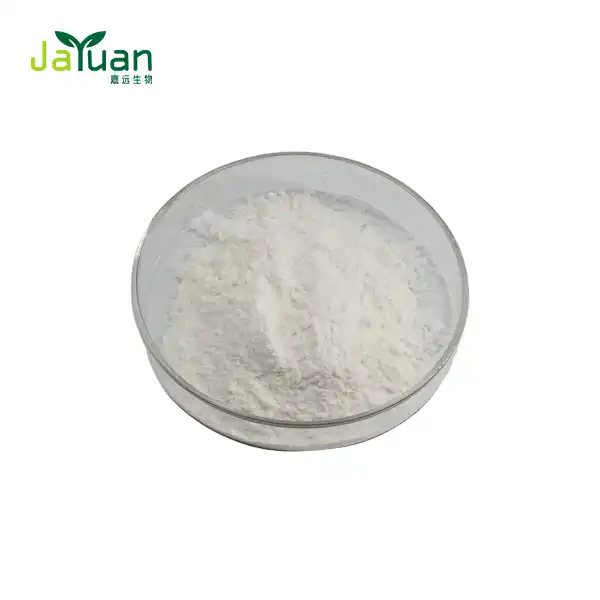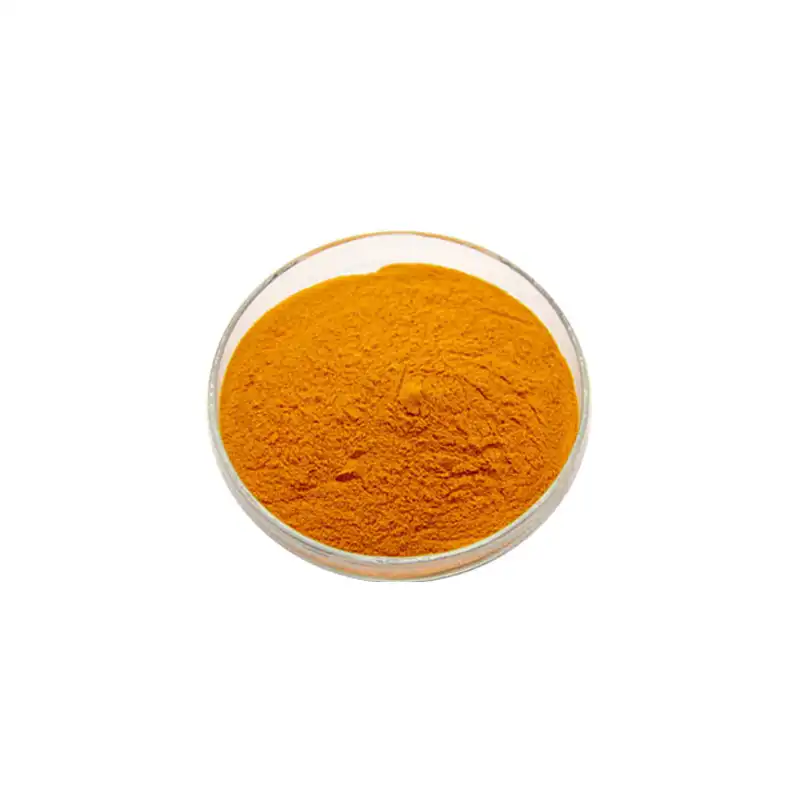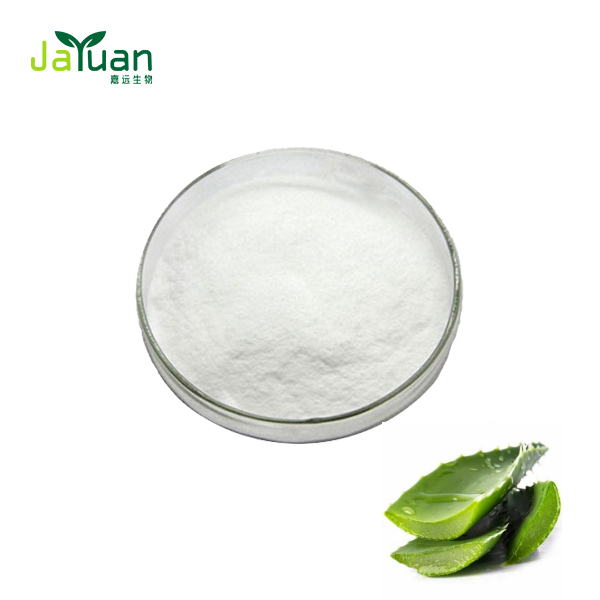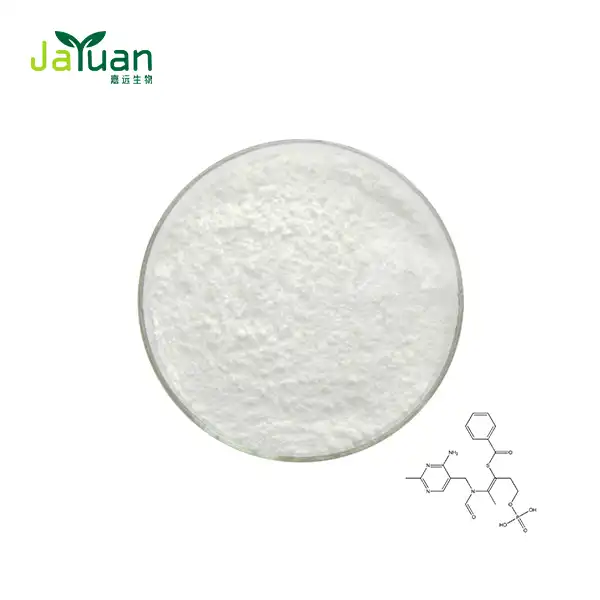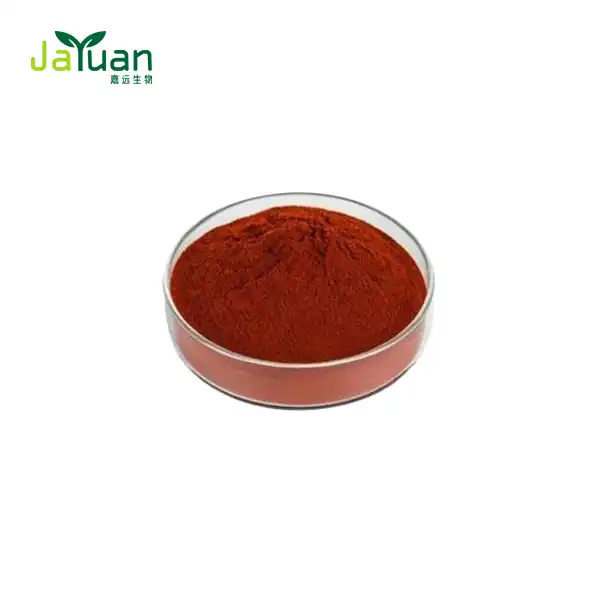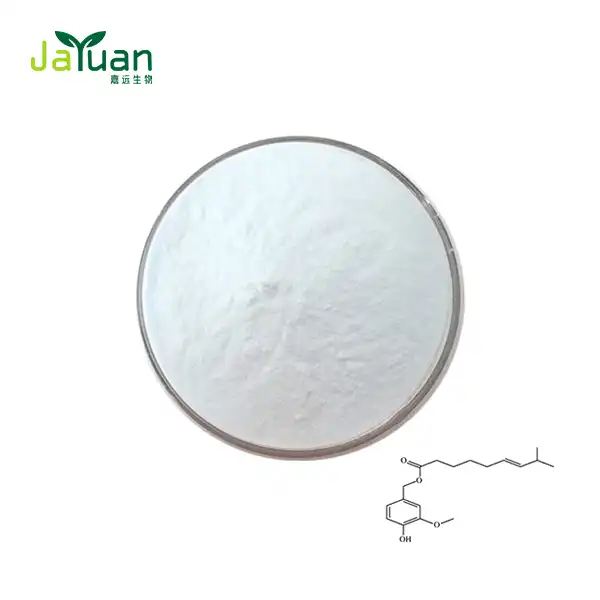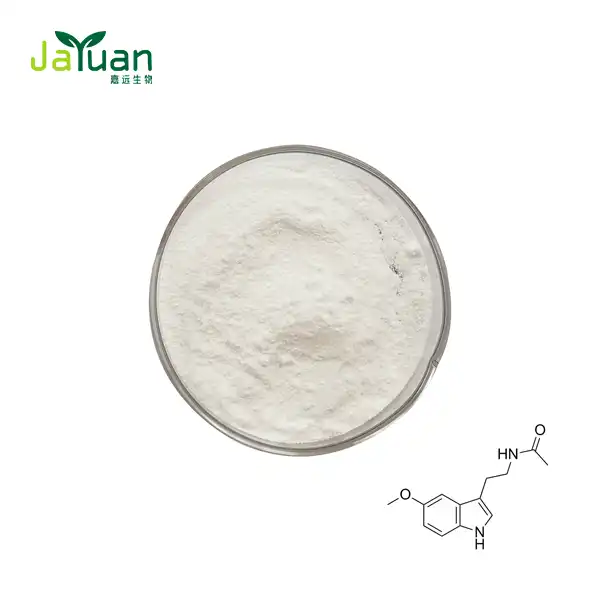Resistant starch powder
Test Method: HPLC
Appearance:White to almost white fine powder
CAS.:213718-26-8
Stock: in stock
Our Advantage: mass production; high-quality products; competitive price; more than 20 years experiences
Not for private person sale
Certificate: ISO, SGS, and HALA
What is resistant starch powder?
Resistant starch powder is a type of starch that resists digestion by pancreatic amylase. It is found naturally in foods such as green bananas, whole grains, potatoes, sweet potatoes, legumes, and whole wheat. Also known as resistant starch (RS), amylase-resistant starch, or indigestible starch, it does not break down into glucose but instead passes through the digestive tract undisturbed until it reaches the colon. Although it cannot be digested in the small intestine, it can be fermented by the microbial flora in the colon, which has positive effects on metabolism. Named for its ability to withstand digestive enzymes and avoid absorption, it offers several health benefits, including blood sugar regulation, promotion of beneficial bacteria growth, improved gut function, and even increased satiety to aid in weight management.
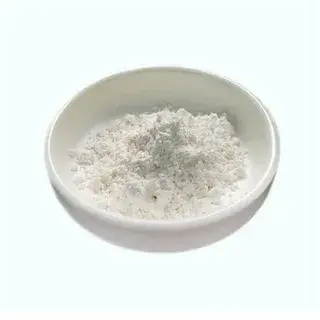
Classification
RS1: Physically inaccessible starch, typically found in whole grains and large starch granules. This type of starch is prevented from being reached by amylase due to barriers such as cell walls or protein isolation. For example, in partially milled grains and legumes, some starch is enclosed within cell walls, preventing it from swelling and dispersing in water and thus making it indigestible. However, it often becomes digestible after processing and chewing.
RS2: It granules that are naturally resistant to digestion. This type is mainly found in raw potatoes, bananas, and high-amylose corn starch. The resistance is due to a dense structure and partial crystalline structure, which disappears once gelatinization is completed.
RS3: Retrograded starch refers to starch that becomes resistant to amylase breakdown due to crystallization that occurs during the cooling or storage process after gelatinization, also known as retrograded starch. Examples include cooled, cooked potatoes.
RS4: Chemically modified starch refers to starch that becomes resistant to digestion due to changes in the starch molecule's structure or the introduction of chemical functional groups through physical or chemical modifications, such as carboxymethyl starch or cross-linked starch. It also includes starch that becomes resistant to digestion due to genetic modifications during cultivation, such as changes in molecular structure due to genetic engineering or chemical methods.
Functions
1. Maintaining Stable Blood Sugar Levels: It digests slowly, which helps maintain stable blood sugar levels. Incorporating it the diet is a simple lifestyle adjustment that can aid in managing diabetes.
2. Anti-Inflammatory Agent: Chronic inflammation plays a key role in the onset and progression of various diseases, including cardiovascular diseases, type 2 diabetes, and certain cancers. The fermentation of resistant starch by the gut microbiota produces short-chain fatty acids, particularly butyrate, which has anti-inflammatory effects. This makes it a potential candidate for alleviating inflammation-related diseases.
3. Promoting Heart Health: It benefits heart health by lowering cholesterol levels. Additionally, it improves blood sugar control by promoting the growth of healthy bacteria in the gut. These bacteria produce short-chain fatty acids that have beneficial effects, including the regulation of the sympathetic nervous system. It may help treat heart conditions exacerbated by an overactive nervous system, such as chronic heart failure, hypertension, and coronary artery disease.
4. Weight Management: It provides strong satiety, which may help reduce appetite. It has lower calories compared to other carbohydrates and may aid in weight loss through these mechanisms. It can directly impact weight management by increasing the thermic effect of food, which is the energy expenditure during digestion and processing. Since it resists immediate digestion, it often increases this thermic effect, leading to higher energy expenditure during fermentation in the colon. This not only helps maintain a negative energy balance but also affects fat storage and enhances fat oxidation, which is crucial for weight management.
5. Treating Allergies: Long-term consumption of it can reduce apoptosis of intestinal cells and maintain the integrity of the intestinal mucosa. It also helps decrease the occurrence of leaky gut syndrome and prevent external toxins from entering the bloodstream. Since allergies and autoimmune diseases are often associated with increased intestinal permeability, it may help in this regard.

Applications
Dietary Supplements: Used as a raw material and carrier in health foods and supplements such as fiber tablets, capsules, oral liquids, and powder packets for conditions like constipation, diabetes, and obesity.
Flour products: In order to improve the situation of less dietary fiber in People's Daily diet, adding traditional dietary fiber such as barley powder to bread production, the disadvantage is that it will produce rough taste, granular texture, deep color, and cover the original flavor of food. Bread made by replacing part of the flour with it has an increased moisture content, a darker surface, a drier, firmer texture, and a greater density, but it does not change the taste. Due to the strong water retention of it, the water absorption of flour is significantly increased, and the stickiness and hardness of dough are also improved. At the same time, with the increase of resistant starch powder, the hardness and chewability of bread are also enhanced, and the acceptance of consumers is relatively high. Such as: steamed bread, bread, pastries, biscuits, noodles, instant noodles and so on.
Fried Foods: The optimal color for fried foods is light yellow, indicating the best frying time. Increasing RS3 content can improve the color, hardness, and crispiness of fried foods, as well as enhance their nutritional value.
Meat Products: It forms gels with myosin in meat, aiding in water and juice retention due to its hydrophilic nature and the movement of water within the gel. Studies have shown that polysaccharides like starch can enhance the viscoelasticity of meat products. Examples include sausages, luncheon meat, sandwiches, shredded meat, and fillings.
Dairy Products: Adding it during the fermentation and storage of yogurt helps solidify the yogurt while protecting probiotics, resulting in a more compact structure with increased elasticity and viscosity. It also helps aggregate casein, reduce whey separation, strengthen the gel network structure, and minimize air bubble formation, improving the quality of dairy products. Examples include milk, soy milk, yogurt, and milk powder.
Beverages: Used in various juices and carbonated drinks.
Alcoholic Beverages: Can be added to spirits, yellow wine, beer, fruit wine, and medicinal wine to produce high-fiber health drinks.
Condiments: Used in products such as spicy sauces, jams, soy sauce, vinegar, hot pot ingredients, and instant noodle soup bases.
Frozen Foods: Includes ice creams, popsicles, jellies, and frozen desserts.

Why choose us?
Xi'an Jiayuan has more than 30 people and over 60 quality analysis personnel who can ensure standardized production operations, we ensure continuous innovation and stable product quality.
It has a complete production line for extraction, concentration, separation and alcoholization, drying, and fine baking. The annual production capacity is 3000 tons. The standing stock is about 30-50 tons. The first guarantee is timely delivery, and the second guarantee is stable supply. The factory implements the separation of production, office and living areas. The production workshop is divided into pretreatment workshop, rough extraction workshop, refining workshop and purification workshop.
We have stable sales and production teams,they all cooperate well to ensure the efficient and high-quality completion of our company's overall operations. This enhances our company's competitiveness and strengthens customer trust and satisfaction. We also have various company group activities to enhance the sense of collaboration.

Certificates
we have passed relevant product certifications such as ISO, SGS, HALA, KOSHER, BRC, ORGANIC, ISO9001, ISO22000, etc.

Payment & Shipment
Payment: Bank transfer, letter of credit. Payment methods such as Western Union, PayPal, etc., are all acceptable.
Shipment: Sea freight/air freight. We collaborate with FedEx, EMS, UPS, TNT, various airlines, and major shipping companies.

Contact us
At Jiayuan, our resistant starch powder are high quality, we are dedicated to providing premium quality products backed by extensive certifications and exceptional service, we provide the tools and support you need to thrive in today's dynamic market. Whether you're seeking OEM or ODM solutions, fast delivery, or testing support, JIAYUAN is here to help you succeed. Contact us at sales@jayuanbio.com.

